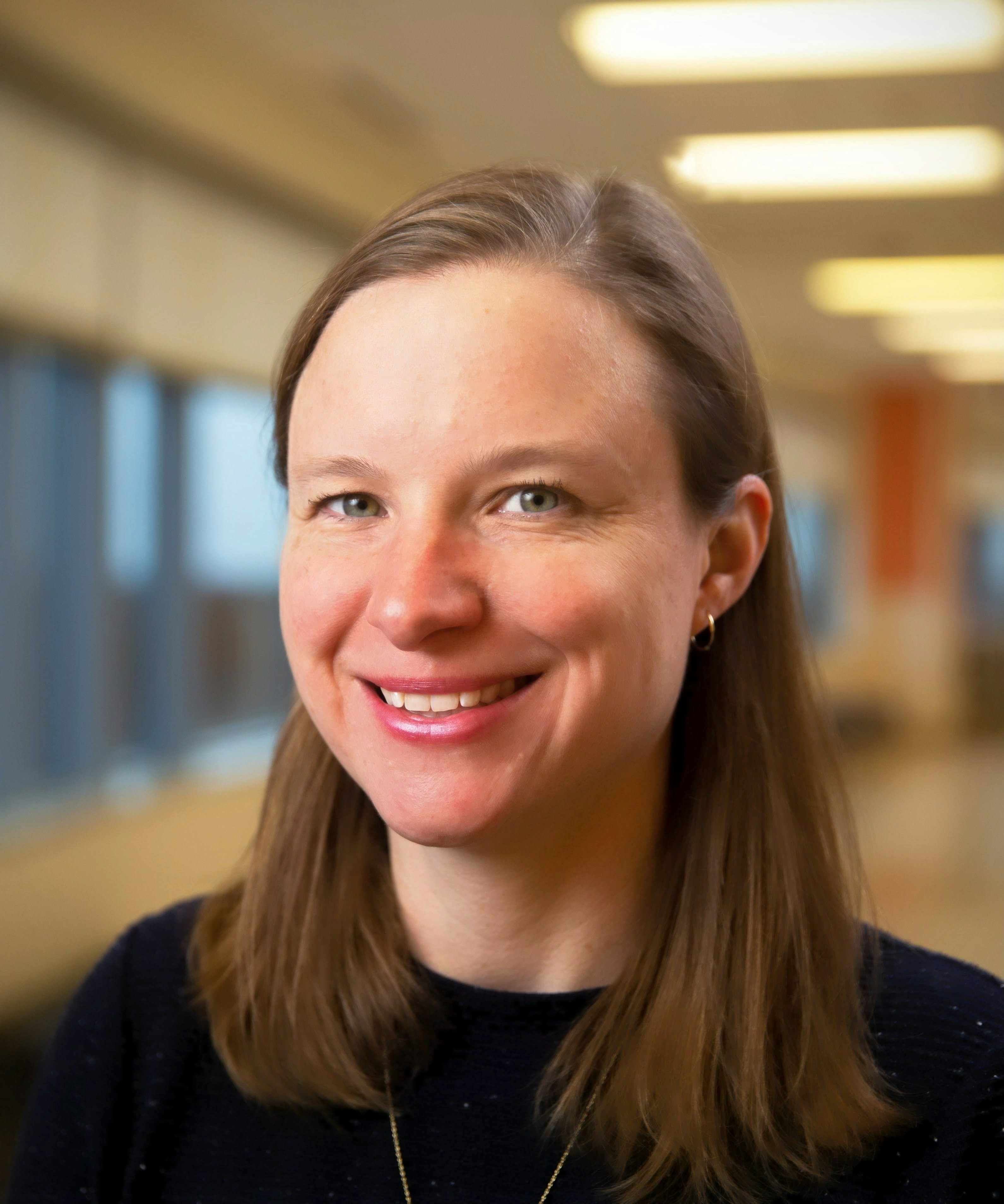You are the Pediatric Cardiology Research Program Manager, can you explain what you do in this role?
As the Research Program Manager for Pediatric Cardiology, I wear several hats—I develop and write clinical trial and study protocols, make project budgets, assist with grant writing, manage finances, oversee contracting for our studies, and just make sure the complex process of research flows as smoothly as possible.
Our group is known as M-CHORD (Michigan Congenital Heart Outcomes Research and Discovery), we consist of a talented and hard-working staff of 18 people that supports research endeavors across the Congenital Heart Center. These endeavors include a variety of single-center and multi-center studies and clinical trials, and we serve as the data coordinating center for several national pediatric cardiology registries.
A lot of data flow through our group! At any given time, we have over 150 ongoing projects, and these include studies and trials led by faculty, nurses, and fellows (all pediatric cardiology fellows are required to complete a research project as part of their graduation requirement, for example), as well as large-scale multi-center studies initiated by the national registries. I also have a specific interest in medical devices, and work on two novel devices that were invented by UM faculty—the bioresorbable airway splint device (Dr. Green/Dr. Ohye), and the ultrasound-detectable endotracheal tube (Dr. Charpie). This work is also significantly supported by MIAP, which is part of MICHR.
I am also one of the associate directors of M-CHORD, along with Dr. Schumacher and Dr. Uzark. Dr. Goldberg is our director.
Can you share some of the research projects/efforts in Pediatric Cardiology?
We have a lot of exciting projects right now! We are wrapping up a clinical trial looking at providing normal (rather than higher-than-normal) levels of oxygen during cardiopulmonary bypass in neonates with cyanotic congenital heart disease (led by Dr. Sznycer-Taub). We also have several interesting studies evaluating exercise and psychological interventions in teens and adults with a Fontan physiology (a palliation for a single-ventricle heart disease) (led by Dr. Hansen and Dr. Cousino). We are also leaders in the COMPASS trial. This clinical trial is co-led by U-M investigators (Drs. Zampi, Romano, Pasquali), and M-CHORD (through Cardiac Networks United) serves as the Data Core. The trial will be the first ever in the field to compare an interventional option (ductal stent) to surgery (BT shunt) in infants with ductal-dependent congenital heart disease, and uses unique methods pioneered by our team to leverage registry data to power the trial. We also recently obtained an IDE from the FDA to conduct a clinical trial for the ultrasound-detectable endotracheal tube medical device—this is only the fourth original IDE obtained in UM history (to my knowledge).
What do you hope to accomplish? Why is your work (and the peds cardiology efforts) so important?
I think research is very important. Surgical and medical treatment for pediatric and congenital heart disease has progressed so much in the last 50 years, some diseases that were universally fatal in infancy 50 years ago now have survival rates 70% or more. It is exciting to be a small part of the next frontier of innovation in this field, in the form of better drugs, devices, and other interventions (exercise, mental health, etc.), as well as studies that capture social determinants of health, and strive to make outcomes more equitable.
What would you say to someone who is interested in working in this capacity? What should they know?
I think it is important to have a solid foundation in medicine and either science or engineering, an interest in scientific writing, and a strong ability to multi-task! Beyond that, I think having an attitude of “I am going to be learning until the day I retire” is critical. Every day I learn something new—about congenital heart disease, about a new regulatory pathway with the FDA, about a new way to measure the safety or efficacy of a new drug, device, or other intervention, etc. Also, research is complex and highly regulated, and there can be many roadblocks along the way. When a person or a study encounters a hurdle, I try to tackle it with the perspective of “we can solve this problem together”.

About Andrea Les, Ph.D.
Andrea Les received her BS in engineering, and her MS and PhD in bioengineering from Stanford University; her PhD focused on imaging and computational simulation of blood flow. Since earning her Ph.D., she worked in the San Francisco Bay Area as a medical device engineer, and in London, England, as an imaging scientist for a contract research organization. Since 2015, she has worked as a project manager in pediatric otolaryngology and pediatric cardiology; she currently serves as the Research Program Manager for Pediatric Cardiology.



